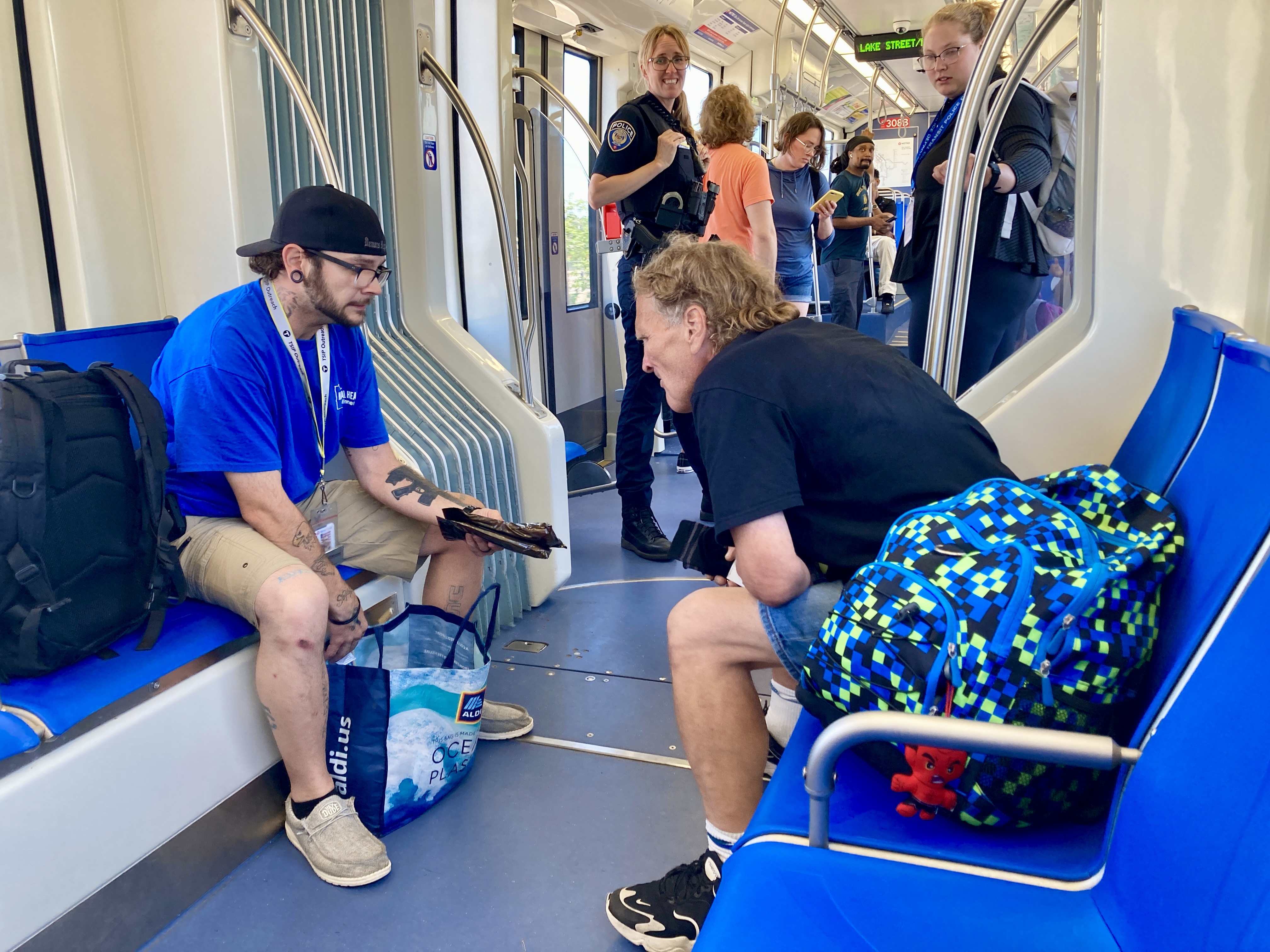
Not long ago, Andy Baseman was a homeless veteran, riding light rail and struggling with addiction.
Today, the certified peer recovery specialist is enjoying four years of sobriety and riding the train with a new mission: To share resources and lend a listening ear to riders facing the kind of challenges he once did.
Over the past six months, he says he’s helped place more than two-dozen individuals into treatment.
“It takes an addict to work with an addict,” Baseman said. “It takes a veteran to work with a veteran...We know what it’s like to feel sick, to do what it takes to get high.”
Basemen is employed by Mental Health Minnesota, one of 10 nonprofit agencies contracted to provide outreach services through the Transit Service Intervention Project (TSIP), a program that kickstarted in 2023 with $2 million in state funding.
Since the program began, these agencies have connected with around 6,700 individuals and made around 3,800 referrals, helping people access shelter, healthcare, and treatment programs.
In addition to the success Baseman has had with Mental Health Minnesota, Roots Wellness Center has seen several individuals a week enroll in day treatment programs; All Our Boys has helped several individuals obtain permanent housing.
Plans to continue outreach activities into the future are in the works. As before, the work will be closely coordinated with the Metro Transit Police Department’s Homeless Action Team, which has worked with service providers for many years.
Efforts will also be coordinated with the growing number of Transit Rider Investment Program (TRIP) Agents who ride light rail to assist riders. TRIP Agents receive information about programs that can benefit those in need.
“Addressing community issues like substance abuse disorders and unsheltered homelessness that can appear on transit really requires sustained effort from a variety of partners,” said Celina Martina, who has overseen TSIP as Metro Transit’s senior manager of Equity & Inclusion. “Our partners have made a huge difference, but there remains much more work to be done.”